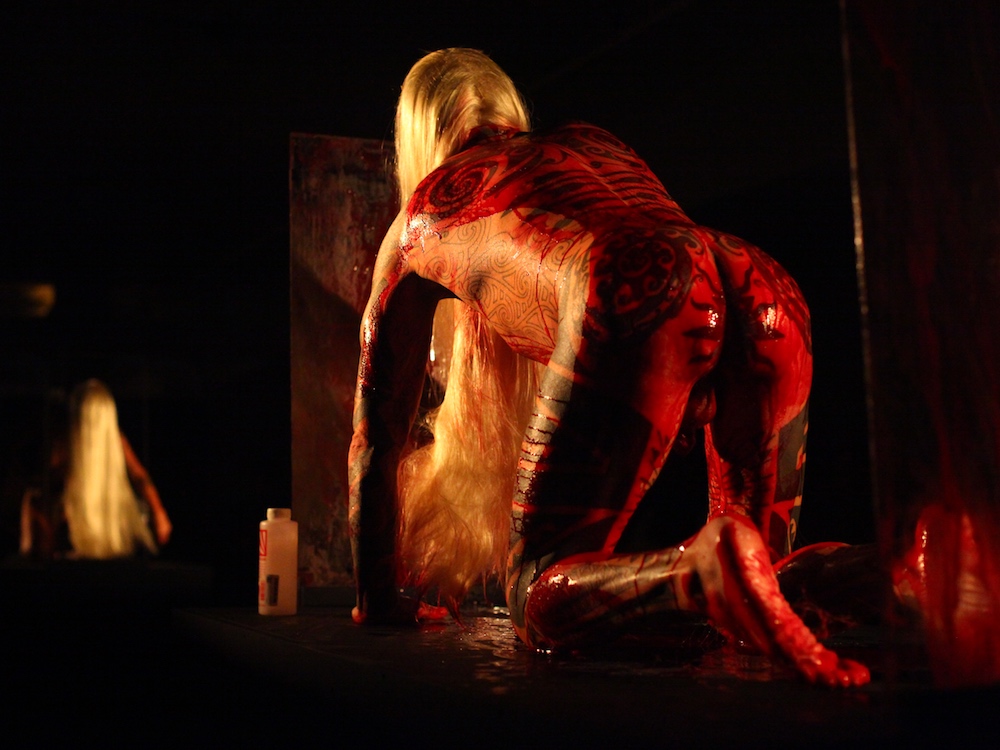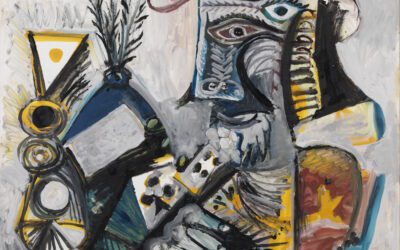[dropcap style=”font-size:100px;color:#992211;”]T[/dropcap]he chequered and diverse career of American performance artist Ron Athey has by its nature generated a wealth of writing.
From handwritten performance notes and ideas to aides-memoires, brochures, flyers, articles and interviews, all are amply represented in Queer Communion, an homage to a unique figure which comes via admirers and friends, as well as Athey himself. It’s a charming and disarming read.
Consisting of previously published as well as hitherto unseen works, Queer Communion is both a history and a rationale, providing a backbone to the kinds of invasive physical performance for which Athey is now best known, having begun collaboratively with Christian Death’s Rozz Williams before moving further into club performances and experimental theatre work from the 80s onwards.
Editor and friend Amelia Jones speaks first, introducing the book with her own reflections on his body of work. She processes the impact and meaning of his art, looking at his place in a tangled discourse about bodies, identity, illness, health, culture and intimacy. The point is made that Athey’s archive was almost lost when a landlord threatened to sell his LA apartment out from under him: happily, Jones was able to rescue a good deal of it, which posed its own issues: how to organise and display it all? Queer Communion is the end point of this journey, and it does a very good job of combining many different types of text into a cohesive whole. Because this is a compendium of already published work as well as new material, there is a little repetition — the impact of being raised by Pentecostals and an overbearing matriarch is revisited several times across separate features — but really, the importance of that early experience with religion is absolutely formative anyway, so it works.
Where Jones’ introduction to Queer Communion is quite academic in tone, when Athey himself speaks he’s much more conversational overall. His tone is self-effacing and he’s very personable, as well as often honest to the point of self-deprecation. It’s hard not to be carried along by this, and equally it’s impossible not to like him and feel almost as though you know him by the end of the book. This genuine sense of warmth must be why several contributors here note the communal nature of Athey’s shows; it no doubt takes a special performer to make often gruelling displays of physical suffering feel like kinship somehow.
Queer Communion is an ambitious project and often an intense read. There is a great deal to digest here, sure, but nonetheless it lives and breathes, creating a well-rounded sense both of a life’s work to date and of the man himself. Fans of Athey’s work, or certainly anyone with an interest in the kinds of experimental performance artists who came punctured and bleeding out of the early 90s will find a great deal of thoughtful, thought-provoking content here.
Queer Communion is published by Intellect Books and available now
Image: Ron Athey, Self Obliteration, 2011
Keri can usually be found contributing to Reprobate Press, where she covers a bit of everything, or writing and editing Warped Perspective, a website which features cult film, TV, art and books.






















